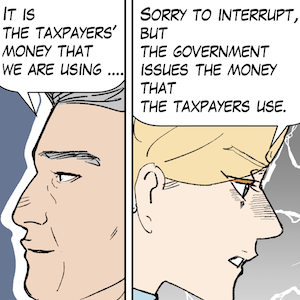Edward Elgar, my sometime publisher, is interested in me updating my 2015 book – Eurozone Dystopia: Groupthink and Denial on a Grand Scale (published May 2015). I have held them off for a few years because there have been notable developments such as Brexit, COVID-19, and more since I finished that work, which are still playing out and difficult to disentangle in such a way that definitive analysis can be made. One of the striking things about Europe, from my perspective, is that voters appear to have separated the growing economic stagnation and the insecurity it brings from their view of the euro as a currency. The most recent – Standard Eurobarometer Survey 102 (conducted in November 2024) – conducted by the EU itself, “has registered the highest support ever for the common currency, both in the EU as a whole (74%) and in the euro area (81%)”. (85 per cent support in Germany and 76 per cent in France). Given the circumstances that is a pretty stunning result. And more respondents thought the EU economy was ‘good’ than those who thought it was ‘bad’, although in Germany and France, the outlook in that regard is highly pessimistic (40 per cent good Germany, 29 per cent France). Yet, the Far Right party in Germany – Alternative für Deutschland (AfD) – which as a result of the national election on February 25, 2025 gained the second highest number of votes (20.8 per cent of total) and improved its voting outcome by a staggering 10.4 per cent. Interestingly, from my perspective, AfD is now the leading voice in Europe against the euro, while other Far Rights voices are no longer (Rassemblement National) or never have (Fratelli) advocated abandoning the euro in favour of a return to national currency sovereignty. So while most Germans like the euro, more are voting for AfD who want it scrapped. That tension is what I am researching at the moment among other things.
